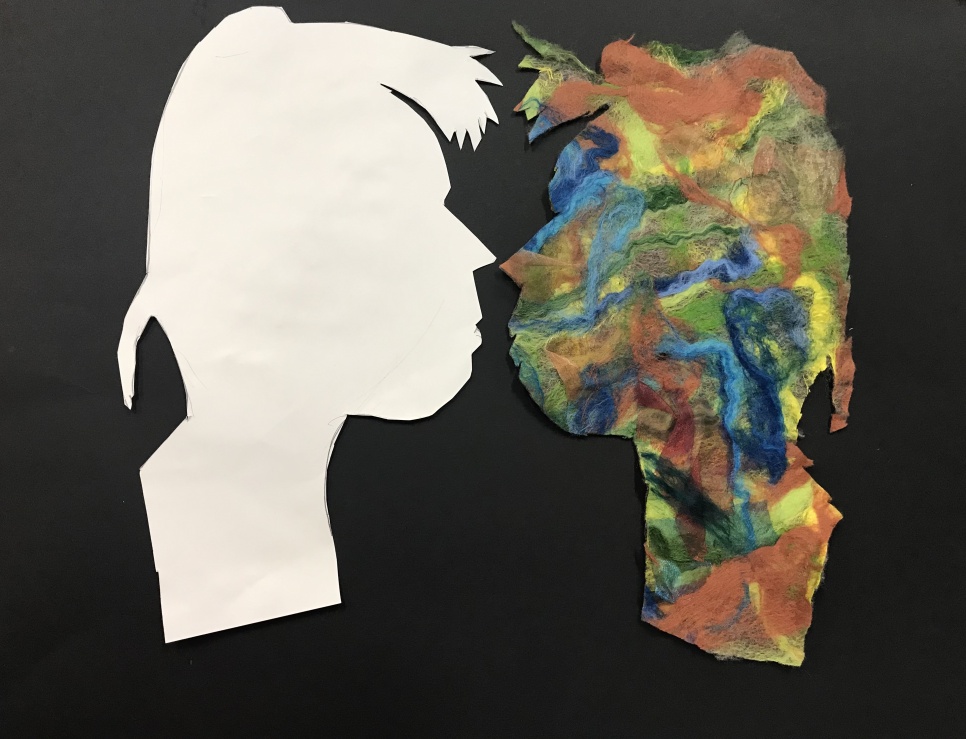Prepare yourself
Question: What is your relationship with the Welsh language?
Before starting, it is beneficial for you to create an informal / creative assessment of your relationship with the Welsh language asking questions along the lines of:
What skill level am I at? Lefelau dysgu | Dysgu Cymraeg
How confident am I when speaking Welsh?
How much Welsh do I use on a day-to-day basis – where?
What Welsh words do I know / use?
What do I know about the Welsh language and Welsh culture?
Who works creatively in Welsh in my area?
Keep in mind – this is not a judgemental exercise but a personal and honest one. We are our most vehement critics and so we are likely to judge ourselves more negatively than others would.
After completing the creative self-assessment, you can try a few things to support your relationship with the Welsh language:
- Take all offers and opportunities to learn and develop Welsh language skills. While the resource supports all levels of skill, the more Welsh you have the better your experience with others will be. Contact the Centre for Learning Welsh to increase your skill and use https://dysgucymraeg.cymru/cymraeg-gwaith/gwasanaethau-cymraeg-gwaith-2023/
- Find out some Welsh history and context. There is an Menter Iaith in every area of Wales https://mentrauiaith.cymru/ can support and direct you to all available resources and networks. The Welsh Language Commissioner's website presents the legal rights https://www.comisiynyddygymraeg.cymru/
- Find Welsh groups and creative workers to work together to develop Welsh language activities. Or create one yourself if none exist.
- Search some of your local history. Wales is brimming with legends, stories, poetry and music. Place names or names of nature for example can be a particular driver of activity.
- Look for people to support your use of Welsh. This can mean a friend (or a beast!) Welsh in the space, organisational support or someone who is willing to talk and discuss with you.
Preparing for a participatory session
Question: What are the participants relationships with the Welsh language?
Welsh is a minority language, so a person needs linguistic confidence to speak Welsh in front of others. Here are some tips to help you create an atmosphere that will encourage people to be confident, playful, and open when using the Welsh language.
Plan language usage as part of a creative session.
Before we start let's plan for Welsh language content and create a supportive atmosphere. Whether you’re conducting an individual activity, starting a series of activities, or continuing with long term activities the methods of creating a positive atmosphere are similar.
Try to discover answers to these questions, to inform planning and preparation:
- What are the language abilities of the participants?
- What iare the participants relationship with the Welsh language?
- What are the levels of language usage / linguistic confidence of the participants?
Combine actions with cultural awareness.
When planning, collect Welsh words/sentences/stories to use during the session. If applicable some of the words or objects could be placed in the space beforehand.
Prepare the space by placing words/objects in advance.
Create an open atmosphere of mutual sharing and learning with participants.
The approaches of the creative learning programme are worth following regardless of activity. It places importance on 5 creative habits of mind which are Perseverance, Collaborative, Curious, Imaginative, Disciplined. To find out more, visit: https://creativelearning.arts.wales/cy/dysgu-creadigol/amdanom/cynllun-ysgolion-creadigol-arweiniol
Prepare questions for you to ask participants to discover and learn together. The questions can be simple or complex, it depends on the participants. Examples would be:
- What is this colour in Welsh? Does anyone know?
- Does anyone have a fun local story / history?
Ask participants to bring something/three things with them to the session. This could be objects, pictures, story, legend, song, a movement and so on.
Adapt activities for various situations / arts and please add to them when possible.

